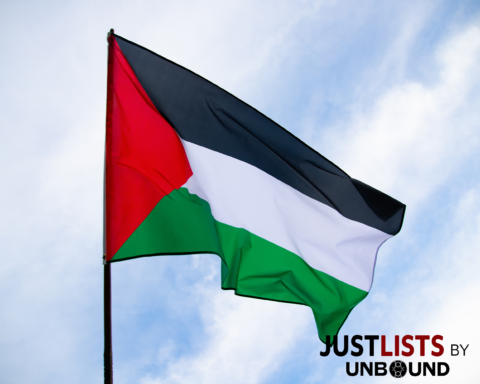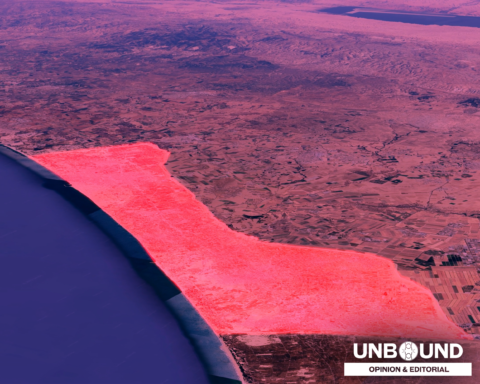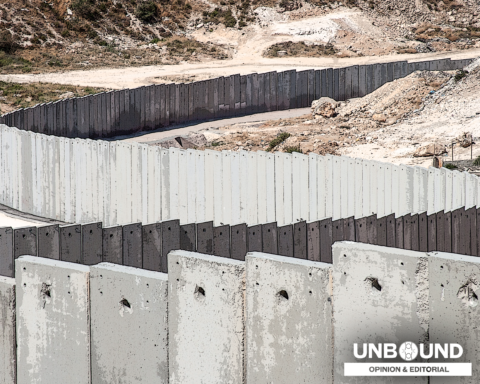Mosaic of Peace, Day 8
We started out this day mired in discussions of the “intractable conflict” in Israel-Palestine, and ended the day with grace, on the River Jordan.

Our meeting in Ramallah with Sam Bahour, a Palestinian businessman (and U.S. Citizen) had elements of hope woven throughout. He pointed out that, in one sense, the world was “close” to applying the political pressure to bring about a two-state solution—in that the only countries blocking blocking progress through the United Nations were Israel, the United States, and Germany. The real barrier, then, was just public opinion in one country: the United States.
We were also reminded, though, that the demographic and domestic political barriers within Israel would not simply be washed away by international pressure. The bottom line is that there is a huge gap between any “reasonable” outcome as viewed by the state of Israel and any “reasonable” outcome from the perspective of Palestinians. Each side views its claims to the land as legitimate and the other’s as dubiously rooted in historical revisionism. Without the basis of shared “facts”, the status quo—a balance of power and political agency weighted in favor of the State of Israel, which includes no Palestinian state—is guaranteed.
Far removed from the distant concept of “Peace,” a “status quo” doesn’t even mean equilibrium. As more and more Israeli settlers pour into Area C—many of whom are actually coming from overseas—and then staying to raise families, we’re moving further and further from a scenario where a two-state solution (preferred by Mr. Bahour, the international community overall, and any current Palestinian leadership that will even consider the negotiation table) is really viable. Meanwhile, originally displaced Palestinians living abroad have generations of children growing up in other countries. Time will only solidify Israel’s claim claim that these children do not count as “refugees” anymore, which lends increasing urgency to Palestinian demands for a Right of Return.
___________________________________________
In this moment, no solution is possible. So people strive, in their own ways, to lay the groundwork for what may be possible tomorrow.
___________________________________________

Most telling for me the story of a conversation Sam had with his daughter and her friends. Sam told us his daughter was of the opinion that the only way forward—though not yet possible—was the human rights approach of insisting “yes, you won the war…but that means you won us along with the land.” In the end, she thought, the annexation would be so complete that the Palestinians could demand citizenship and full human rights wholesale.
It may sound good to us—but on the same trip, we have heard others decry the one-state solution as “something only ignorant foreigners talk about. They don’t understand how we really can’t live together in one state.” In particular, as people on both sides have pointed out, Israel is unlikely to ever allow a situation in which it has to choose between its Jewish identity and being democratic.
___________________________________________
Not once but twice, a dove descended—as we closed our prayers, and right after three of us had stepped out of the river, re-baptized.
___________________________________________

And so the conflict seems intractable. Others have said on our trip: “too late for two states; too early for a one-state solution.” As Sam and others struggle to make a Palestinian state viable in the West Bank (holding on to hope, in most cases, for East Jerusalem and Gaza to be included) before it is too late, time moves on. In this moment, no solution is possible. So people strive, in their own ways, to lay the groundwork for what may be possible tomorrow.
I said at the start that we ended the day with grace. Without trying to perfectly unpack the significance of the moment—impossible without being there—I will just say that re-affirming our baptisms at the River Jordan was an absolutely necessary spiritual rejuvenation. We prayed, we sang, we affirmed our faith and affirmed each other. Just feet away, backs turned to guards with loaded guns, we prayed for peace. And impossibly, not once but twice, a dove descended—as we closed our prayers, and right after three of us had stepped out of the river, re-baptized.
May we be ever reminded that, in God, all things are possible.
***
The Mosaic of Peace trip is part of the ministry of the Presbyterian Peace Program. It brings members and partners of the PC(USA) from a variety of backgrounds to Israel-Palestine in order to “experience this remarkable and troubled region, encounter its diverse people, explore its rich history and complex current situation, and engage with those who seek its peace.”
This blog entry was contributed by Henry Koenig Stone, as part of our effort to bring back and share the stories of Mosaic of Peace 2018. Today’s photos were provided by Diane Fitch. The full blog is co-hosted by Unbound and by the Presbyterian Peacemaking Program.





Unbound Social